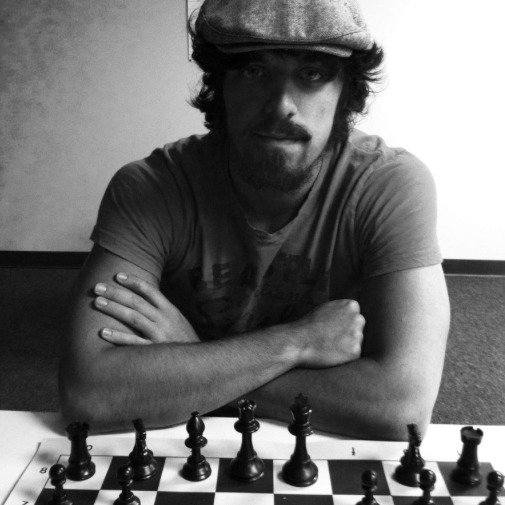
When it’s Jonathon Singler’s move, he sits back and surveys the chess board.
He may imagine moving his knight two squares vertically and one square horizontally. He may consider moving his queen diagonally across the board. He may debate moving the rook back to better defend the king.
But beyond that, he’s thinking of his next move and the next after that. Thinking of traps he can set. And thinking about which of the millions of combinations of moves his opponent may play. He’ll play out a myriad of sequences in his head, weighing the potential outcomes and using what he knows about his opponent to gauge how they’ll respond to his play.
Chess is something he just gets – not surprising, considering he is a newly minted US Chess Federation coach, after all.
Nationwide, there are currently 263 US Chess Federation certified chess coaches. Singler is the only one in Alaska.
Chess has long been a passion for him. He can rhapsodize endlessly about how the game is both a sport and an art form and therefore improvement requires intentional practice and a devotion to theory. Though study of chess takes a back burner to classwork while school is in session, he makes up for it in during breaks — he estimates he plays a minimum of 10 hours a day in the summer.
He’s unselfish in his love, though. After starting at APU last fall, Singler made it his mission to establish a chess club here and to instill the spirit of the game in others.
But that’s just the beginning.
Leveling-up
To become a certified chess coach one must: be a current US Chess member, have a letter of endorsement, and score at least an 80 percent on a test that covers basic game rules, terminology, tournament procedures and requirements and paperwork to run a club scholastically and collegiately.
Getting the letter was the most difficult. The USCF has strict rules about credibility – the writer needs to be writing on behalf of an organization recognized by USCF, like a school or foundation or is an individual with prodigious standing in the chess world. Singler’s letter of endorsement was written by a teacher whom he helped develop a high school chess club with.
While there is no specific skillset that can prepare an individual to become a coach, Singler said the enduring love for the game and experience are key.
Originally, to coach chess one typically held a high-ranked master title after years of dedication and performance. The last decade saw a surge in chess coaches, though there wasn’t a system to check for legitimacy, which became problematic as people started offering coaching services to school districts. While a certification isn’t required, having the standing gives certified coaches more cred to serve as ambassadors to the game and the laws associated with it.
The love of the game
While becoming a coach is a big milestone in the chess realm, Singler isn’t content with staying at this first post. There are numerous ways he can level-up as a coach and player.
His most immediate plan is to make the move from Class B player to Class A. The levels after that are Expert and National Master, the latter of which is awarded for life. To level-up, or “playing-up” as it’s known in chess circles, requires that he win more games than he loses against players in higher brackets than he.
This summer, he’s planning on competing in at least six tournaments – he’s signed up to do some in Texas, Louisiana, Oklahoma, Arkansas and Florida – though he’s hoping to add a few more.
For Singler the drive to compete and better himself as a player is better understood through the positive psychology concept: flow.
“It’s the one activity that engages me without percept of time, space, or life outside the board,” Singler said. “The drive is simple; to create a work of art, that is both one of intellectual struggle and novelty-seeking for each move, as both my opponent and I, despite culture, race or age, are equals speaking the language of chess.”
Growing chess in the 49th state
Alaska hasn’t has a statewide tournament in years.
“My goal is to not only fix that, but to allow chess to thrive here by using APU as a flagship and leading example,” Singler said.
Combining his new coaching certification with his U.S. tournament director certification, Singler is hoping to teach chess more formally during club meetings, as well as hold rated tournaments for members to compete and gain experience in. Eventually, he said, he’d like to offer such availability to both the local school district and other interested chess players in Alaska.
APU’s Chess Fellowship hosted an intramural tournament last semester and is currently amidst application to become a USCF affiliated collegiate chess team for extramural competition.
He hopes that the increasingly competitive nature of the club doesn’t deter new players. The goal, he said, is “to create an enriching environment to both chess and socialization while building upon skill for all levels of play.”
Meetings for the Chess Fellowship are Thursday and Sunday 7:30-9 PM in Carr-Gottstein 226 and all are welcome to attend.
